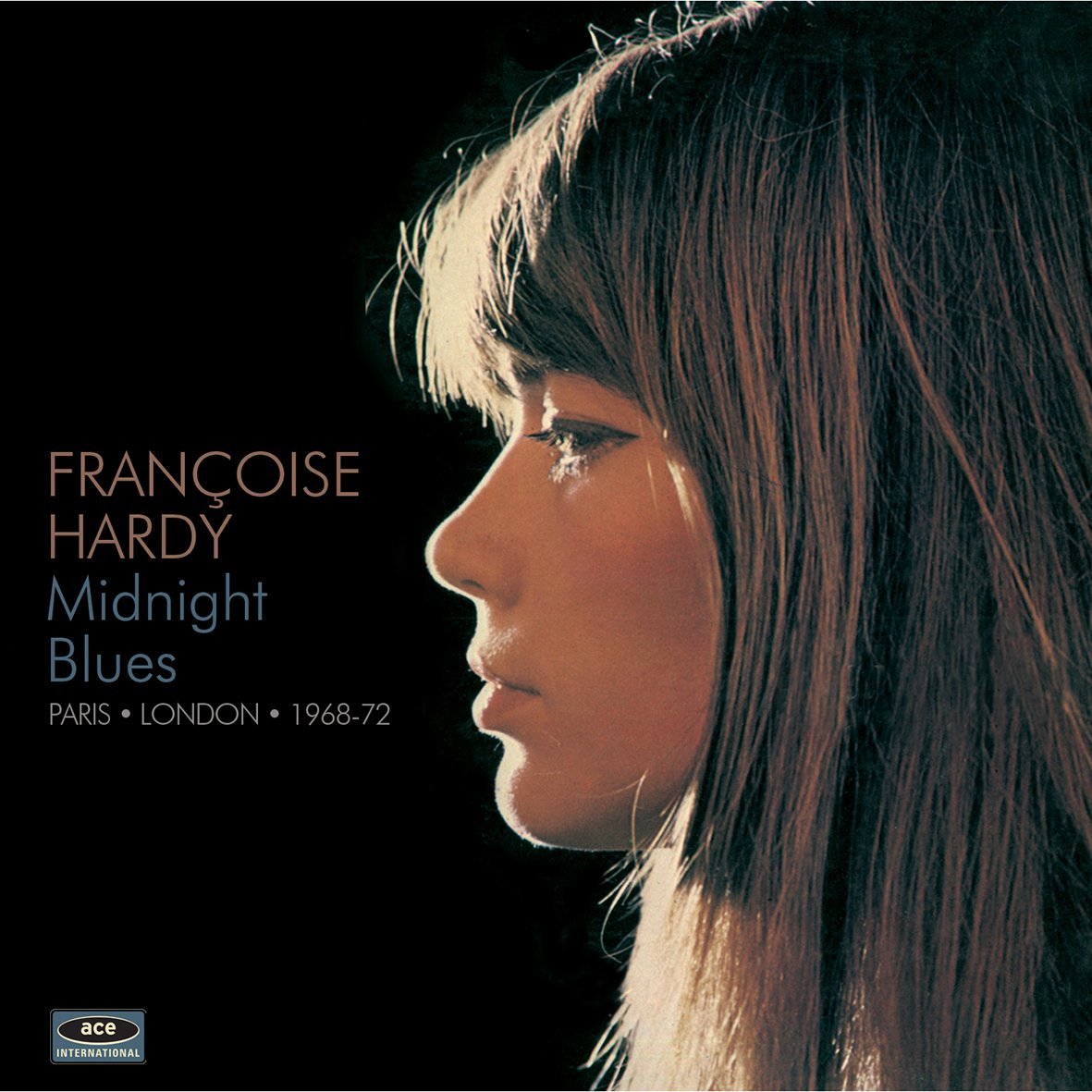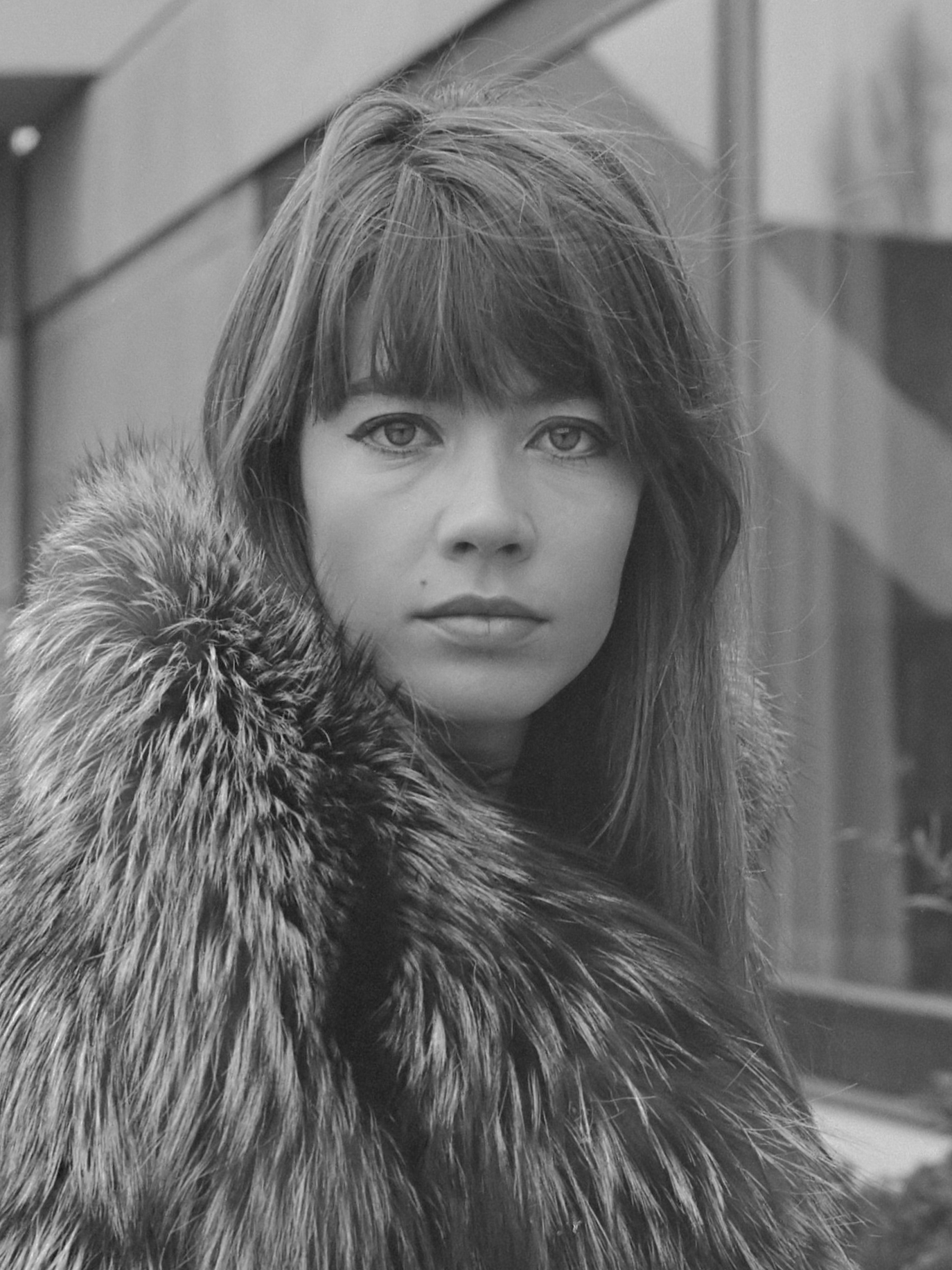Want to see an updated, corrected, and generally better version of this article? Check it out at its new home on Suburban Pagans.
Francoise Hardy may have been the most stereotypically French of the Yē-Yē girls: Aloof, sophisticated and beautifully melancholy. Nevertheless, her sound was one that was largely made in England – or, at least, by English hands, among them producer and arranger Charles Blackwell, the songwriting and production team of Tommy Brown and Micky Jones, and sometime co-writer Pierre Tubbs. By 1968, with Hardy now overseeing her own Asparagus label, the artist chose to give free reign to this facet of her work by recording a trio of albums en anglais, all of which have been lovingly compiled into Ace International’s single cd set Midnight Blues.
By 1968, the Yē-Yē sound had started to go out of vogue in France and, with rebellion in the air, there was little appetite for the type of schoolgirl naiveté evinced by Hardy’s 1963 breakout “Tous Les Garcons Et Les Filles”. Fortunately, Hardy was nothing if not eager to move in a more adult direction. As such, these albums show a heavy influence of the contemporary British folk scene, evoking everyone from Nick Drake to Fairport Convention to The Trees – one of whose songs, “The Garden of Jane Delawney”, is covered on the third and finest of the collections, If You Listen. 1970’s One-Nine-Seven-Zero sees the singer cover Leonard Cohen’s “Suzanne” in a version produced by none other than Serge Gainsbourg. Furthermore, the songwriting credits of If You Listen, in particular, read like a who’s who of the leading edge songwriters in the English language circa 1972, with tracks by Neil Young, Buffy Sainte-Marie, British folky Beverley Martyn, and Randy Newman – who’s “I Think It’s Gonna Rain Today” is a highlight of the collection. One almost has to wonder why Harry Nilsson didn’t make the cut.


Now, should all of this 1970s singer-songwriter energy make you fear something altogether too beardy from Midnight Blues, let me assure you that, in the production and arrangement, Hardy and crew makes it something distinctly her own. One-Nine-Seven-Zero and If You Listen, in particular – both of which make up the bulk of Midnight Blues — are seductive works of continental sophistication, all lush, swirling strings laced with intricate and meticulously arranged guitar interplay. Also in Hardy’s favor is the fact that, in contrast to some of her fellow Yē-Yē stars, she has a truly lovely voice (seriously, I love France Gall and Sylvie Vartan as much as the next guy, but I’d hate to hear them take on some of the delicate material that Hardy aces here).
With yet another wildly informative booklet from Saint Etienne’s Bob Stanley, Midnight Blues is a collection that’s hard to find fault with. True, it does skimp on tracks from Hardy’s first English album, 1968’s comparatively pedestrian Francoise Hardy En Anglais, but that’s a small sacrifice to make in order to have One-Nine-Seven-Zero and If You Listen in their entirety. If there is any supplement I would suggest to the album, it would be 1971’s Brazilian influenced La Question, Hardy’s arguable masterpiece. It is with albums such as these that the former teeny bopper chanteuse successfully broke out of the Yē-Yē orbit and charted a course toward becoming an enduring cultural icon.
